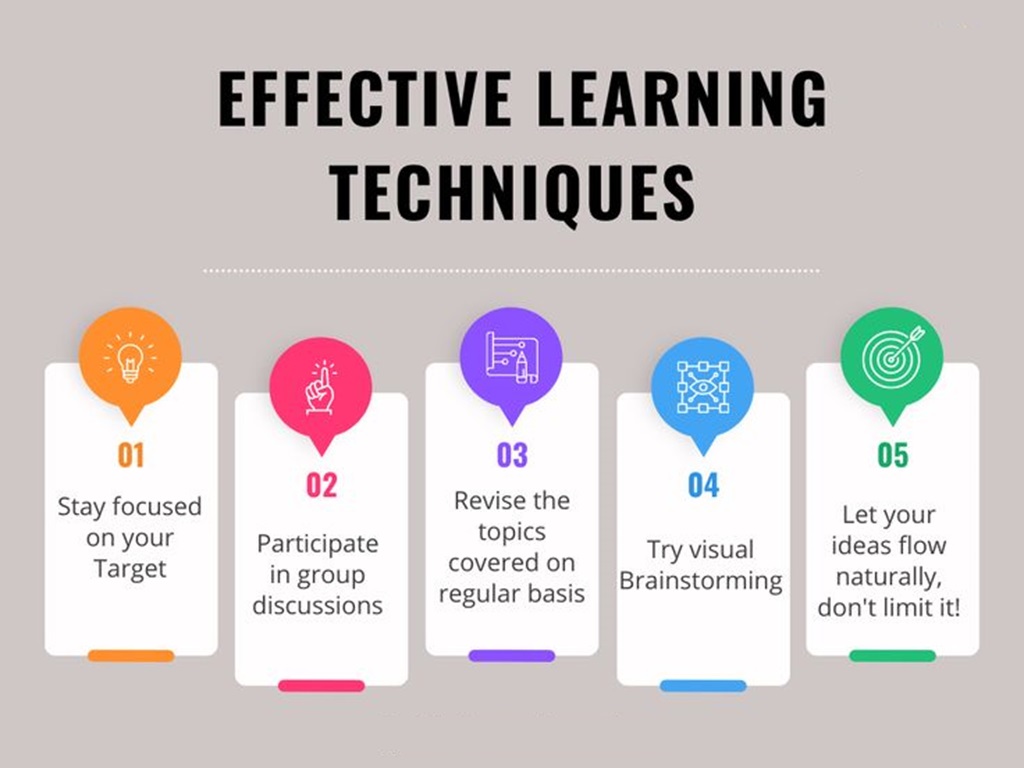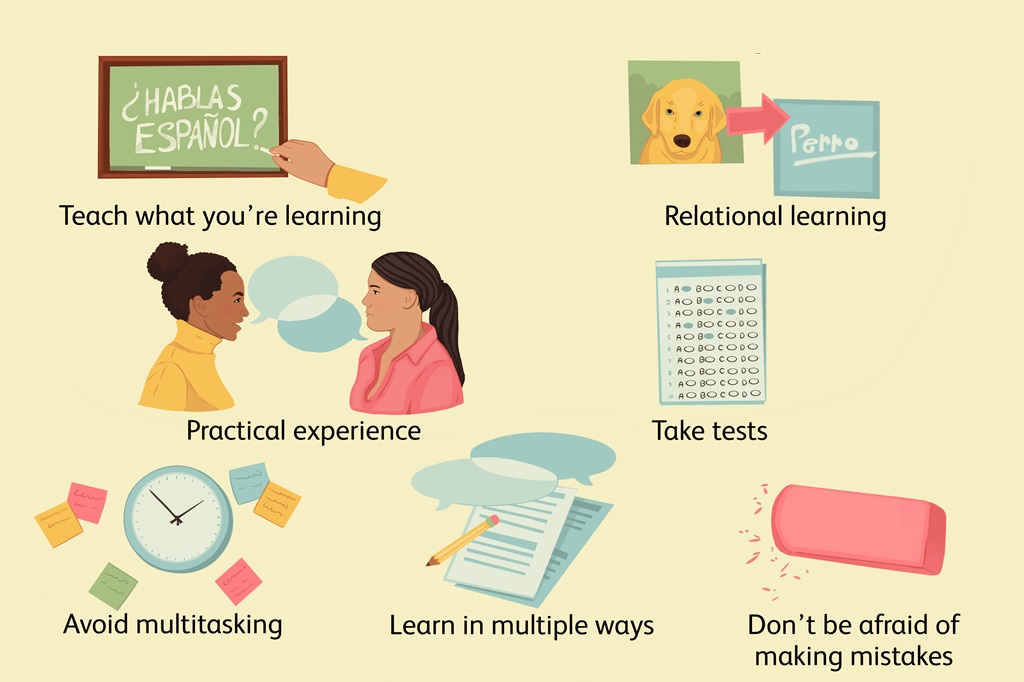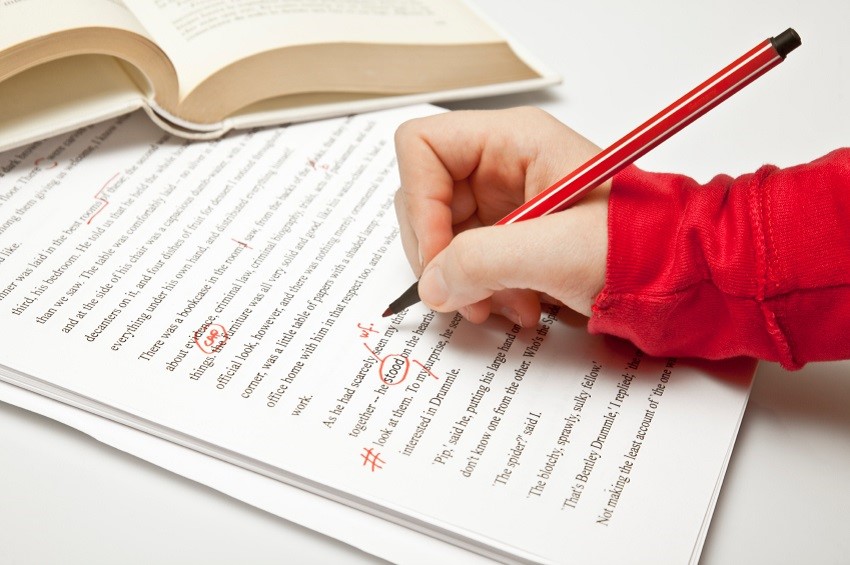
What are Some Effective Study Techniques? Boost Your Academic Success Now!
Some effective study techniques include spaced practice, active recall, the Feynman Technique, joining a study group, and taking regular breaks. These techniques help improve memory retention and cognitive understanding, leading to more effective learning.
When studying effectively, it’s essential to utilize proven techniques that enhance memory retention and understanding. Incorporating spaced practice, active recall, the Feynman Technique, study groups, and regular breaks can significantly improve learning outcomes. These techniques, endorsed by educational resources like Dldxedu, are backed by scientific evidence and can be personalized to suit individual learning styles and preferences, making them valuable tools for academic success. By adopting these strategies, students can optimize their study sessions, making learning more efficient and enjoyable.
Incorporating these techniques into your study routine can enhance your ability to absorb and retain information, ultimately leading to better academic performance and long-term knowledge retention.
The Importance Of Effective Study Techniques

Effective study techniques play a crucial role in academic success. By utilizing methods such as spaced practice, active recall, and joining study groups, students can enhance their learning and retention of information. Incorporating the Harvard study method into their study routine promotes a deeper understanding of concepts and enables students to prepare for exams effectively. These techniques, when applied diligently, can transform the learning process, making it more structured, efficient, and productive, leading to better academic outcomes and a more profound mastery of the subject matter.
Effective study techniques enhance academic performance and the overall learning process. By adopting appropriate study strategies, students can boost their understanding and retention of information, ultimately leading to improved academic success.
How Study Techniques Can Boost Academic Success
Implementing effective study techniques can significantly impact academic success. Methods like spaced repetition, active recall, and the Feynman Technique can enhance information retention, comprehension, and critical thinking skills. These techniques assist in grasping the material more thoroughly and contribute to long-term memory storage, enabling students to excel in examinations and real-world applications.
The Impact Of Study Techniques On Learning And Retention
Study techniques play a pivotal role in learning and retention. Strategies like distributed practice, interleaving, and using mnemonic devices aid in reinforcing learned concepts and making connections between different subjects. These techniques promote a deeper understanding of the material, making it easier for students to recall information when necessary, thereby improving their overall retention and knowledge retention. By incorporating these essential study techniques and understanding their profound impact on academic performance, students can cultivate effective learning habits and ensure their success in their educational journey.
Evidence-based Study Techniques
Regarding effective study techniques, evidence-based methods have demonstrated their efficacy in improving learning and retention. Incorporating these scientifically proven approaches into your study routine can enhance academic performance and knowledge retention.
Spaced Practice
The spaced or distributed practice involves spreading study sessions over time, allowing for intervals between reviewing the material. This method has been shown to improve long-term retention of information and is more effective than cramming all at once.
Active Recall
Active recall is a learning technique that actively stimulates memory during learning. Learners can reinforce their retention of the material by consistently recalling information from memory, such as through flashcards or practice tests.
Feynman Technique
The Feynman Technique encourages learners to explain concepts in simple terms as if they were teaching them to someone else. This method promotes deep understanding and the identification of knowledge gaps, leading to more effective learning.
Join A Study Group
Joining a study group allows collaborative learning, discussion, and explanation of complex topics. Group study sessions can offer diverse perspectives and reinforce understanding through peer interaction.
Interleaving
Interleaving involves alternating between different topics or skills during study sessions. This technique enhances retention and the ability to differentiate between concepts, promoting a deeper understanding of the material.
Leitner System
The Leitner System is a popular flashcard-based method that employs spaced repetition. It involves organizing flashcards into separate piles based on the learner’s mastery of the content, allowing for a more frequent review of challenging material.
Take Breaks
Taking breaks during study sessions is essential for maintaining optimal focus and cognitive function. Scheduled breaks can help prevent mental fatigue and improve productivity during learning activities.
Study Techniques For College Students
Developing effective study techniques is crucial for academic success as a college student. It’s not just about spending hours with your textbooks; it’s about studying smart. This blog post will explore some tried-and-tested study techniques that can help college students optimize their learning process.
Reading Techniques
Reading textbooks and course materials is a fundamental part of studying in college. However, simply reading the text may not be enough to truly understand and retain the information. Here are some reading techniques that can enhance your comprehension and retention:
- Skimming and Scanning: Skim through the text quickly to get an overview of the content. Then, scan for specific keywords and headings to locate relevant information.
- Active Reading: Engage with the material actively by highlighting key points, taking notes, and summarizing the information in your own words.
- Chunking: Break down the text into smaller, manageable chunks to improve focus and understanding.
- Visualization: Create mental images or diagrams while reading to form connections and aid in memory retrieval.
Information Retrieval
Retrieving information from memory is a crucial part of studying. The ability to recall and apply knowledge is essential for exams and assignments. Here are some techniques to improve information retrieval:
- Active Recall: Test your knowledge by quizzing yourself on the material without referring to your notes or textbooks.
- Spacing Effect: Spread your study sessions over multiple days or weeks to reinforce memory retrieval.
- Interleaving: Mix different topics or subjects during study sessions to enhance learning and retention.
- Use of mnemonics: Mnemonic devices such as acronyms, visualization, or rhyming phrases can help you remember complex information.
Note-taking Strategies
Note-taking is an indispensable study technique for college students. It helps in organizing and reviewing information effectively. Here are some note-taking strategies that can improve your learning experience:
- Cornell Method: Divide your note paper into three sections: a narrow left column for cues, a more comprehensive right column for main points, and a summary section at the bottom.
- Mind Mapping: Create visual diagrams that connect ideas and concepts using keywords, colours, and branches.
- Outlining: Use hierarchical bullet points to organize information in a structured and logical manner.
- Highlighting and Annotation: Mark important passages or critical terms in your textbooks or course materials and write brief notes in the margins for future reference.
Incorporating these reading techniques, information retrieval strategies, and note-taking strategies into your study routine can significantly improve your understanding, retention, and application of course material as a college student.
Creating An Effective Study Plan
To create an effective study plan, embrace techniques such as spaced practice, active recall, and joining a study group. Incorporating the Feynman Technique, interleaving, and taking regular breaks can enhance comprehension and retention of material. These strategies help students to engage deeply with the content and reinforce their learning effectively over time.
Creating an Effective Study Plan When studying effectively, having a well-structured study plan is essential. This ensures that you are organized, focused, and able to make the most out of your study sessions. This section will discuss some critical components of creating an effective study plan. From finding a good place to study to engaging with the material, these techniques will help you optimize your studying experience and achieve better results.
Find A Good Place To Study
Finding a suitable study environment is crucial in enhancing your concentration and productivity. Look for a quiet, comfortable space to minimize distractions and focus solely on your studies. A dedicated study space can be a specific room in your house, a library, or a coffee shop. Experiment and find what works best for you.
Take Breaks
While it may seem counterintuitive, taking regular breaks during study sessions can boost your productivity. Studies have shown that short breaks between study intervals help prevent burnout, improve focus, and enhance information retention. Consider using the Pomodoro Technique, which involves studying for 25 minutes and taking a 5-minute break. Repeat this cycle several times, and take a longer break after a few cycles. Give your brain the chance to recharge and absorb what you’ve learned.
Set Goals
Setting clear goals is vital to stay motivated and on track with your studies. Before each study session, take a moment to outline what you want to achieve during that time. Break down your goals into smaller, manageable tasks. Setting specific and attainable objectives provides you with a sense of direction and a sense of accomplishment as you tick off each task.
Engage With The Material
Merely reading through textbooks or lecture notes may not be enough for effective learning. Engage with the material actively to reinforce your understanding and memory. Use techniques such as summarizing concepts in your own words, teaching the material to someone else, creating diagrams or mind maps, or solving practice problems. Actively engaging with the material ensures that you are not just passively absorbing information but truly comprehending and internalizing it.
Find A Study Buddy
Studying with a partner or a group can be highly beneficial, as it allows you to exchange ideas, tackle challenging concepts, and hold each other accountable. Choose a study buddy who is equally motivated and committed to achieving academic success. You can discuss complex topics, quiz each other, explain concepts, and provide valuable support throughout your study sessions.
Wellness Check
Lastly, a study plan should also prioritize your well-being. Ensure you get enough sleep, eat well, and care for your physical and mental health. Incorporate regular exercise and relaxation techniques like deep breathing or meditation. Remember, a healthy body and mind are fundamental to effective studying.
Creating an effective study plan involves finding the right study environment, taking breaks, setting goals, actively engaging with the material, finding a study buddy, and prioritizing your well-being. By incorporating these components into your study routine, you can maximize your study sessions and achieve academic success.
Maximizing Learning With Effective Techniques

When studying effectively, using the proper techniques can make all the difference. By incorporating active learning strategies, such as quizzing yourself and summarizing critical information, you can enhance your understanding and retention of the material. Additionally, mnemonic devices and creating study guides can aid in organizing and recalling information.
With adequate time management, you can allocate sufficient time to each study technique, allowing for a comprehensive and structured approach to your learning. This article will explore some of these techniques and discuss how they can maximize your learning potential.
Active Learning
In active learning, the emphasis is on engaging with the material rather than passively reading or listening to it. This technique involves taking an active role in the learning process, whether through participating in discussions, solving problems, or conducting experiments. By actively engaging with the material, you can improve your understanding and retention of the content. Additionally, it encourages critical thinking and problem-solving skills, enhancing your overall learning experience.
Quizzing Yourself
Self-quizzing is an effective way to reinforce your knowledge and assess your understanding. In this technique, you ask questions about the material you have studied. This helps you identify gaps in your knowledge and enhances your recall and retrieval of information. Regular self-quizzing can significantly contribute to your learning process, whether you use flashcards, online quizzes, or mock exams.
Summarizing And Paraphrasing
Summarizing and paraphrasing involve condensing information into your own words. This technique promotes active engagement with the material and helps you consolidate and understand key concepts. By summarizing and paraphrasing, you must analyze and interpret the information, strengthening your comprehension and retention of the material.
Using Mnemonic Devices
Mnemonic devices are memory aids that help you remember information more effectively. These devices can be acronyms, rhymes, or visual associations. You can enhance your recall by associating new information with familiar or vivid images. Mnemonic devices are handy for remembering lists, formulas, or complex information that may be challenging to retain.
Creating A Study Guide
A study guide acts as a comprehensive roadmap for your learning journey. It helps you organize and structure the material, making it easier to navigate and review. By breaking down the content into manageable sections, you can focus on specific areas and identify gaps in your knowledge. A study guide can include fundamental concepts, definitions, examples, and practice questions, providing a valuable resource for revision.
Effective Time Management
Time management plays a crucial role in effective studying. You can ensure a balanced approach and maximize your learning potential by allocating dedicated time to each study technique. Creating a schedule or using a planner can help you prioritize tasks, set realistic goals, and avoid procrastination. Effective time management allows for focused and concentrated study sessions, enabling you to maximiser your available study time.
Frequently Asked Questions On What Are Some Effective Study Techniques
What Is The Most Effective Method For Studying?
One of the most effective ways of studying is to space out your learning sessions. By breaking up your study load over several days, you retain information better and deeply ingrain it for long-term retention. Finding an excellent place to study, take breaks, and engage with the material is essential.
What Is The 1 2 3 Method For Studying?
The 1 2 3 method for studying is an effective technique that involves spacing out your learning sessions. Instead of cramming in one long session, break up your study load over several days. This helps profoundly ingrain information and allows for better retention in the long term.
What Is The 2 3 5 7 Study Method?
The 2 3 5 7 study method is an effective studying technique. It involves breaking up your study load over several days instead of cramming it into one long session. By spacing out your learning sessions, you can retain information more quickly and ingrain it for the long term.
What Are The 5 Successful Study Habits?
Some effective study habits include spaced practice, active recall, joining a study group, interleaving, and taking breaks.
Conclusion
Incorporating effective study techniques is essential for success in academic pursuits. One of the most effective methods is spaced practice, where learning sessions are spaced out over several days. This allows for better retention of information in the long run.
The impact of study habits on academic performance cannot be overstated; incorporating techniques such as active recall, joining study groups, and employing the Feynman Technique, alongside creating a comprehensive study plan that emphasizes breaks, goal-setting, and active engagement with the material, can markedly boost studying efficiency and overall academic success.
By implementing these techniques, students can optimize their learning and achieve better academic results.





